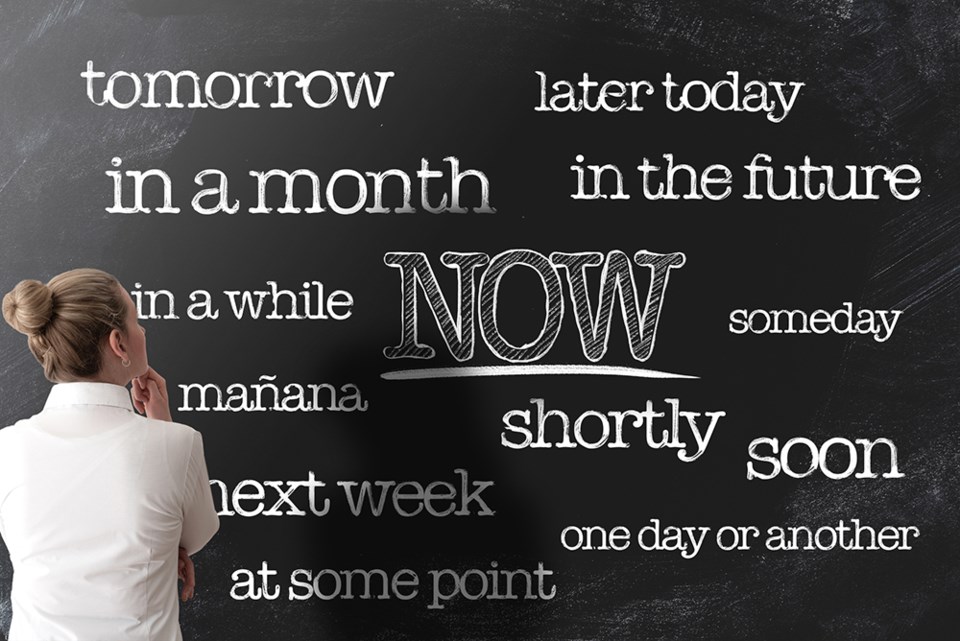Many books were written on how to stop procrastination. Many people believe we can avoid it, overcome it and become cured of this unhealthy habit.
Since the habit of putting things off is predictable, the first thing to do is not to take action, but to stop. When you suddenly stop to think about what you are doing and why you’re doing it, it breaks the pattern of procrastination.
Procrastination is a trap many of us fall into. According to researcher and speaker Piers Steel, 95 per cent of us procrastinate. While it may be reassuring to know you’re not alone, we have to be aware of the consequences of procrastination.
As a former procrastinator, I have experienced the powerful hold of procrastination in my life. It kept me trapped in fear and isolation without hope for a better life.
Why do we procrastinate?
There are many reasons why we procrastinate and don’t do things we need to do. It could be health reasons: depression, obsessive-compulsive disorder or fears. If you have fear of failure, rejection or the unknown, more than likely you will avoid things that involve any change.
When do you procrastinate?
Being aware of the area in which you procrastinate can be very helpful in your journey to prevent this debilitating habit. Procrastination and disorganization are a related and powerful duo to stop you from living the life you desire.
Here is a list of instances when you might procrastinate:
Fixing things
If things have been broken for months or years, more than likely you don’t need them anymore. Decide if they are even worth fixing; if not trash them. Organizing and cleaning chores are not enticing for many people, but somebody has to do them. Ask your family for help or hire a professional and get the job done.
Are you neglecting your personal life?
Eating healthy meals, getting regular exercise, personal development and attaining enough rest is a must for a healthy mind and body. If you procrastinate in this area and do not take care of yourself, there will be consequences for your neglect later on in life.
Does procrastination affect your career?
Are you getting to work on time, or is your tardiness being noticed by your boss? Are you organized and prepared for the day?
Do you complete tasks assigned to you or do you make excuses for not doing them? Do you have a challenge committing to work, home or family?
What’s next?
Forgive yourself for procrastinating in the past. Self-forgiveness can help you to feel more confident and eager to tackle the tasks you don’t like.
Commit to changing unhealthy habits. Focus on the feeling when the chore is completed. You will probably feel energized, inspired and proud of yourself.
What is one unhealthy habit you will tackle this year? Write it down and share it with your family and friends.
I will leave you with one of my inspirational quotes: “Purposeful planning leads to productivity and progress.”
Ranka Burzan owns a professional organizing company based in the qathet region and has written several books on reducing clutter and becoming more organized. For information, go to solutionsorganizing.com.




